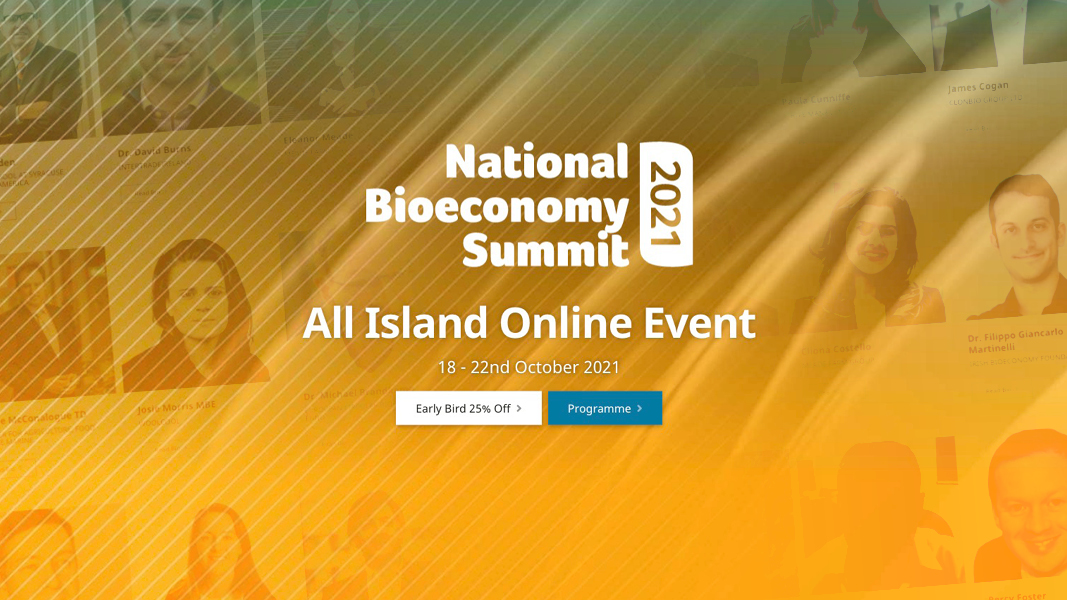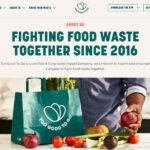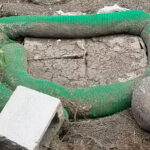The inaugural All Island National Bioeconomy Summit, October 18-22, 2021, celebrates Ireland’s growing bioeconomy. Organized by the Green Institute and supported by the Small Firms Association & Irish Bioeconomy Foundation, the virtual Summit “comes at a pivotal time for the sector and will create much debate and be thought provoking,” notes Percy Foster, founder of the Green Institute, which specializes in education for professionals in the green arena. The Summit kicks off with a motivational speaker, Mark Pollock, who had to teach himself to be resilient due to blindness and an accident that left him paralyzed. “Mark will host a one-hour master class with his colleague Paula Cunniffe to share his insights in a session called ‘Turning Challenges into Opportunities — the Resilience Cycle’,” explains Foster. “They will explore how to build resilience and maintain motivation, adapt to change and unexpected challenges, and chart a path through uncertainty — all critical skill sets as we transition from business as usual to a bioeconomy.”
Other speakers include Dr. Lalitha Gottumukkala, Chief Innovation Officer at Celignis Biomass Analysis Laboratory in Limerick, who will discuss the potential of seaweed in the Irish Bioeconomy and how seaweed-derived materials can be superior to the existing fossil-derived materials that are currently used in personal care, textiles, paints, coating, and biomedical applications. Celignis is working on fractionation of seaweed and converting seaweed polymers to a wide range of innovative biomaterial products. “There is huge potential for biomass to sustainably meet global energy, chemical and material needs, but the shift required is massive and it needs effort from every scientist, every business and every individual,” says Gottumukkala.
She adds that the growth of the bioeconomy in Ireland is “highly possible given the resources available in the agricultural, forestry, and seaweed sectors. Ireland has abundant agricultural resources like grass and manures, which can be used for energy production through biogas. Additionally, the forest sector has the capacity to go beyond timber and firewood if wood’s high-value chemicals and polymers are mined effectively. Bioeconomy policies should support and foster regional and rural development, specifically to a more circular and low-emission economy. Traditional practices like dairy farming and seaweed harvesting/cultivation should be given technology options and financial support to make them circular and sustainable whilst increasing the product and market spectrum.”
Josie Morris, Managing Director of Woolcool in England, will speak to Summit participants about The Wool Packaging Company’s journey from its origins through to becoming a market leader. Woolcool, using patented technology, produces high performing insulated packaging from wool for the shipment of temperature sensitive products. “The bioeconomy is the core to everything we are, and what we do as people,” says Morris. “We hope that we are raising the profile and displaying the possibilities and opportunities of using natural materials as sustainable alternatives to the current external challenges. From my experience at Woolcool, we have found that legislation/certification and even tender applications are often geared towards man-made materials/plastics/status quo. As natural materials are not catered for in many of these areas, it takes a lot of time, energy and resource to push back against this to achieve a positive outcome.”
Registration for the Bioeconomy Summit can be accessed via this link.










